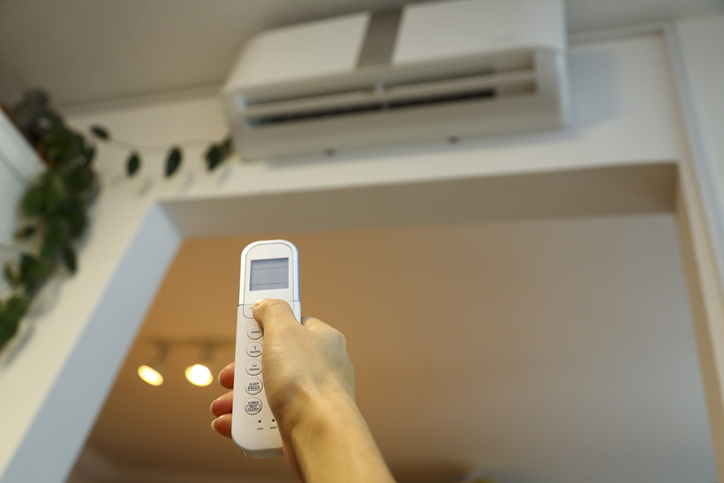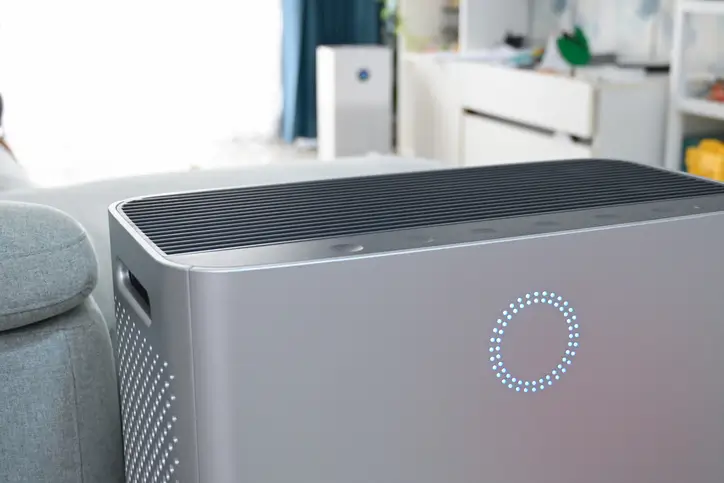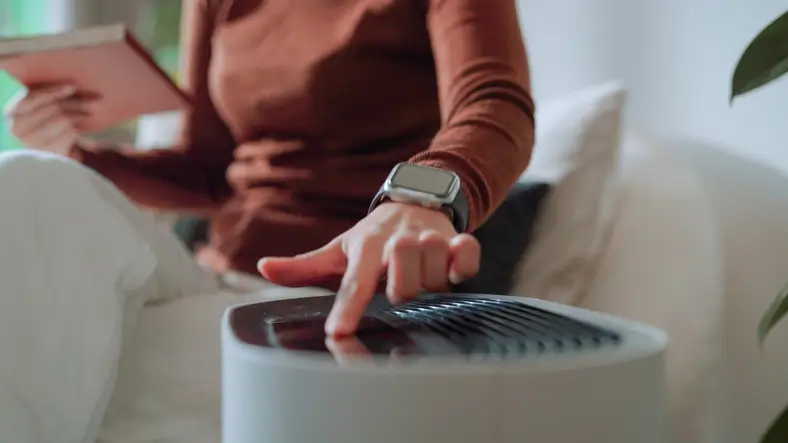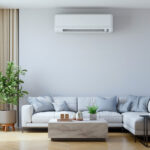
The Importance of Indoor Air Quality in Winter
During the winter months, indoor spaces become a refuge from the cold, but this cozy shelter can also trap pollutants, allergens, and excess moisture, creating poor indoor air quality in winter. As we shut windows, seal up drafts, and limit ventilation, indoor air quality suffers, often reaching levels far worse than outdoor air. Understanding the causes, risks, and practical solutions for maintaining good indoor air quality in winter is essential to keeping homes safe, and comfortable.
In this extended guide, we’ll cover everything from health impacts to best practices and even DIY methods for enhancing air quality.
What is Indoor Air Quality (IAQ)?
Indoor air quality refers to the condition of the air inside buildings, where pollutants, allergens, and other harmful substances can accumulate. It is a key factor affecting comfort, productivity, and overall health. Poor indoor air quality in winter not only leads to discomfort but also poses serious health risks, particularly to those who are more susceptible, including children, the elderly, and individuals with respiratory conditions.
Common pollutants affecting indoor air quality in winter:
- Particulate Matter (PM): Produced through combustion, cooking processes, and tobacco smoke.
- Volatile Organic Compounds (VOCs): Emitted by cleaning products, paints, and household materials.
- Biological Pollutants: Dust mites, mold spores, and bacteria thrive in winter’s closed environments.
- Carbon Monoxide (CO): Produced by heating systems and fireplaces, CO is dangerous if not properly ventilated.
Health Hazards of Poor Indoor Air Quality During Winter
As the air indoors becomes stale and filled with contaminants, health risks increase. Cold weather illnesses like the flu are compounded by indoor pollution, making winter particularly challenging for those sensitive to air quality issues.
Symptoms and conditions linked to poor winter air quality:
- Respiratory Irritation – Exposure to pollutants can lead to inflammation in the respiratory tract, causing chronic coughing, sneezing, and sinus infections.
- Fatigue and Headaches – VOCs and carbon monoxide can cause dizziness, headaches, and general fatigue, impacting productivity and daily comfort.
- Asthma and Allergy Flare-Ups – Dust, mold spores, and pet dander can quickly build up in unventilated spaces, triggering asthma attacks and allergies.
- Severe Long-Term Health Risks – Prolonged exposure to poor air quality is linked to serious diseases, including cardiovascular problems, central nervous system issues, and cancer.
The Causes of Poor Indoor Air Quality in Winter
Understanding the specific factors that degrade indoor air quality in winter can help homeowners make effective changes. The main contributors range from heating systems to household products and limited ventilation.
Key contributors to indoor air pollution in winter:
- Heating Sources: Fireplaces, wood stoves, and gas heaters release smoke, particulate matter, and CO, which all reduce air quality.
- Ventilation Limits: Closed windows and doors trap airborne contaminants and humidity, creating a breeding ground for bacteria and mold.
- Synthetic Household Products: Cleaning supplies, personal care items, paints, and furnishings emit VOCs, which can be harmful in enclosed spaces.
- Accumulated Dust and Allergens: Carpets, bedding, and furniture can collect dust mites, pet dander, and pollen that irritate the respiratory system.

Tracking and Monitoring Indoor Air Quality in Winter
To take control of your home’s air quality, consider investing in an air quality monitor. These devices measure various pollutants, providing real-time insights and helping you make data-driven adjustments to improve air quality.
Key features to consider in an air quality monitor:
- VOC and CO2 Detection: Measures levels of harmful compounds and carbon dioxide, indicating when ventilation is needed.
- Humidity Monitoring: This helps you maintain a balanced humidity level, reducing the risk of mold growth.
- Dust and Particulate Detection: Shows concentrations of airborne particles, such as pollen, pet dander, and dust.
- Smart Alerts and Recommendations: Some models offer specific suggestions on improving air quality based on readings.
Investing in an IAQ monitor allows you to identify problem areas and stay ahead of potential health risks associated with poor indoor air quality in winter.
Effective Methods to Enhance Indoor Air Quality During Winter
Improving indoor air quality in winter can be achieved through simple measures that make a significant impact. Whether it’s DIY steps or advanced purification systems, creating a clean, healthy indoor environment is within reach.
Upgrade and Maintain Your HVAC System
- Use High-Efficiency Filters: Choose a filter with a high MERV rating to capture fine particles, mold spores, and allergens.
- Schedule Routine Maintenance: Regular service prevents the buildup of dust, mold, and allergens, ensuring efficient operation.
- Invest in a Quality Humidifier or Dehumidifier: Humidifiers prevent dryness, while dehumidifiers help control moisture and mold.
Control Humidity Levels
Maintaining balanced humidity is crucial to avoid mold growth and dust mites, both of which thrive in damp environments.
- Ideal Humidity Levels: Aim for 30-50% humidity.
- Use a Dehumidifier: In areas with high humidity, a dehumidifier can prevent mold buildup.
- Ventilate High-Humidity Areas: Use exhaust fans in kitchens and bathrooms to control moisture during activities that generate steam.
Choose Low-VOC Household Products
Switching to low-VOC products can significantly reduce chemical exposure, which is especially beneficial in the confined spaces of winter.
- Cleaning Products: Opt for natural or low-VOC cleaners to minimize chemical emissions.
- Paints and Finishes: Select low-VOC paints and finishes to reduce harmful emissions in newly painted or renovated areas.
- Personal Care Products: Perfumes, sprays, and other personal care items often contain VOCs – use them sparingly or find alternatives.
Adopt Regular Cleaning Habits
Frequent cleaning reduces airborne particles and allergens, creating a healthier indoor environment.
- Vacuum Carpets with HEPA Filters: HEPA vacuums capture small particles that can trigger allergies.
- Dust Regularly: Dusting helps minimize particulates in the air, improving overall air quality.
- Wash Bedding in Hot Water: Hot water kills dust mites and other allergens embedded in bedding.
Winter-Specific Tips for Enhancing Indoor Air Quality
In addition to general practices, there are winter-specific steps you can take to ensure high indoor air quality in winter when ventilation is limited.
Winter indoor air quality tips:
- Use a Carbon Monoxide Detector: Carbon monoxide is a serious risk during winter heating – install a detector near sleeping areas for safety.
- Limit Use of Fireplaces: Fireplaces emit smoke and particulates; use them sparingly, and ensure adequate ventilation if you do use them.
- Test for Radon: Radon can seep into homes through cracks in the foundation and tends to accumulate more in winter when ventilation is restricted.
- Reduce Outdoor Pollutants Indoors: Leave shoes at the door and regularly clean entryways to reduce outdoor dirt and pollutants.
Top Air Purification Options for Winter
For those looking to make an impactful investment in air quality, air purifiers can capture pollutants and neutralize airborne pathogens. Different types of purifiers offer distinct advantages for winter air quality.
Types of air purification systems:
- HEPA Air Purifiers: Effective at capturing airborne particles, including allergens and dust, HEPA purifiers are ideal for households with allergy sufferers.
- Activated Carbon Filters: Absorb VOCs, odors, and gaseous pollutants, making them suitable for homes with pets or frequent cooking.
- UV Purifiers: Use ultraviolet light to kill bacteria and viruses, adding an extra layer of protection during cold and flu season.
- Ionizers: Create negatively charged ions that attract and neutralize particles, reducing allergens and odors effectively.

Each type of purifier addresses specific air quality concerns, so choosing the right one depends on your home’s unique needs and the primary pollutants you want to tackle.
Benefits of Maintaining Good Indoor Air Quality in Winter
When you invest in maintaining good indoor air quality in winter, the benefits are immediate and long-lasting. A cleaner indoor environment supports health, well-being, and peace of mind.
Advantages of winter IAQ management:
- Enhanced Comfort: Clean, well-ventilated air reduces irritation, making your indoor environment more comfortable.
- Improved Physical Health: Lower exposure to allergens and pollutants decreases the risk of respiratory and cardiovascular illnesses.
- Increased Energy Efficiency: A clean HVAC system and proper ventilation can improve heating efficiency, reducing energy costs.
- Peace of Mind: Knowing that your indoor air is clean and safe creates a reassuring sense of security, particularly during winter.
Professional Services for Improving Winter Indoor Air Quality
If persistent issues arise, working with professionals ensures that your home’s air quality meets the highest standards. McMillin Air offers HVAC installations, maintenance, and advanced air purification systems to address winter air quality issues effectively.
Why Choose McMillin Air for Indoor Air Quality Solutions?
- Expert Technicians: Our team is skilled in servicing, installing, and optimizing air quality systems.
- High-Quality Products: We carry reputable brands like Mitsubishi and American Standard for HVAC and air purification.
- Customized IAQ Solutions: We assess your home’s unique needs and provide tailored solutions for the best possible indoor air quality in winter.
Contact McMillin Air for Reliable Winter IAQ Support
At McMillin Air, we are committed to helping you maintain clean, safe indoor air throughout the winter season. Reach out today for a consultation on HVAC and air purification options designed to combat the unique challenges of winter air quality. Breathe easier with our expert support and enjoy a healthier indoor environment this winter. Request a quote today.








0 comments